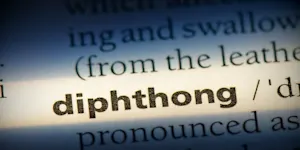What Makes This Word Tick
"Occident" is a charming word that's all about direction. It refers to the western parts of the world, particularly Europe and the Americas. It's not as commonly used today, but conjures up imagery of sunsets and ancient compass roses. Compared to its sibling "Orient," which means east, "Occident" brings a touch of nostalgia and a whiff of old-world exploration.
If Occident Were a Person…
Imagine Occident as a dignified older gentleman, donning a well-worn fedora and carrying a leather satchel filled with tales from across the Atlantic. He’s well-versed in the arts and culture of Europe, fond of afternoon teas, and has a penchant for historic cathedrals and cobblestone streets. A storyteller at heart, he revels in the golden glow of twilight as much as the vibrant start of his day.
How This Word Has Changed Over Time
The allure of "Occident" has dimmed slightly over the centuries, giving way to the more modern term "Western world." It first appeared in Middle English, borrowed from Old French, and originally from the Latin word "occidens," meaning "setting" or "sunset." While its Romance language roots remain, today's usage is often poetic or historical.
Old Sayings and Proverbs That Use Occident
Though "Occident" itself isn't prevalent in old proverbs, the contrast between East and West has long fueled proverbial wisdom. The phrase "East is East, and West is West" from Rudyard Kipling encapsulates the cultural and philosophical differences perceived between the Occident and Orient.
Surprising Facts About Occident
Not purely geographical, "Occident" once held cultural and political connotations, especially during the age of exploration and colonization. It defined not just location but encompassed the spread of Western thought, religion, and technology. Modern linguists might encounter it more in cultural studies than on maps.
Out and About With This Word
In the physical sense, discovering the Occident might mean touring Europe's classic landscapes, from the vineyards of France to the castles in Scotland. It's a region celebrated for its variety, where each city and country tells its own age-old story against a backdrop of history and innovation.
Pop Culture Moments Where Occident Was Used
Though less frequent than "Western world," "Occident" finds a home in literature, films, and sometimes music, particularly when artists aim for an old-timey feel or historical context. It evokes a sense of depth and tradition in stories about international adventures or diplomatic dealings.
The Word in Literature
"Occident" appears in the works of travellers and poets who reveled in the descriptions of sunset hues and the lands they illuminate. It's perfect for historical novels or tales of diplomacy and discovery, especially in settings involving intercontinental travel.
Moments in History with Occident
The Occident was a term in vogue during the height of the colonial era when European nations ventured into the New World. The Renaissance and Age of Enlightenment bring Occident to mind, reflecting the blossoming of culture that swept westward along trade winds and sea routes.
This Word Around the World
In different languages, the word takes on various forms: "Ouest" in French, "Occidente" in Spanish and Italian, and "Okcidento" in Esperanto. Each retains the same westward notion but might flavor the term with unique cultural nuances, depending on historical significance.
Where Does It Come From?
Rooted in Latin, "occidens" directly ties to the setting sun, literally translating to "falling" or "going down" as the sun does each day. Its journey through Old French to Middle English mirrors the travels and exchanges between regions and languages throughout history.
How People Misuse This Word
It's easy to confuse "Occident" with simply "west" in terms of direction. While “west” is a straightforward compass point, "Occident" often embodies more than just geographical location—implying cultural and historical contexts that are sometimes overlooked.
Words It’s Often Confused With
Orient: As its counterpart, it refers to the east but carries its own cultural baggage.
Western: More commonly used today, often interchangeable when referring to culture but not direction-specific.
Additional Synonyms and Antonyms
Synonyms include "West" and "Western world," while antonyms are "Orient" and "East," each offering different shades of meaning depending on their context—geographical, cultural, or historical.
Want to Try It Out in a Sentence?
Explorers from the Occident brought with them not just goods but tales of their adventures, shaping the world’s view of those mysterious, faraway lands bathed in the glow of the setting sun.
















